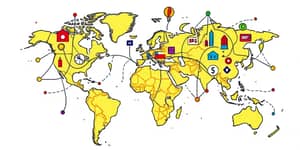Financial discipline is more than a set of practices; it is the foundation upon which true autonomy and freedom are built. Through deliberate choices and steadfast habits, anyone can transform their monetary reality and unlock the doors to lasting independence.
Introduction
At its core, financial discipline is the art of conscious management of financial resources. It is through this intentional approach that individuals gain the power to shape their futures, break free from dependence, and create stability in every aspect of life.
The Foundation: Financial Literacy
Before discipline can take root, knowledge must be cultivated. Financial literacy—understanding credit, debt, investing, and budgeting—serves as the springboard for responsible behavior. Research confirms this link decisively: a standardized coefficient of 0.721 (p < 0.001) illustrates how literacy drives positive financial choices.
Statistical analyses reveal an F-value of 340.478 in studies connecting literacy with behavior, indicating a strong and statistically significant influence on how people manage money. In short, the more you know, the more you can control.
Essential Habits of Financial Discipline
Developing discipline requires adopting clear, actionable habits. By integrating these practices into daily life, individuals build a robust framework that guides every financial decision.
- Sticking to a realistic budget that aligns with income and goals
- Avoiding impulsive spending to minimize unnecessary debt
- Saving a percentage of every paycheck to build reserves
- Paying bills and loan obligations on time to maintain credit health
- Protecting assets through insurance and emergency funds
Popular budgeting frameworks help structure these habits. Below is a comparative overview:
By following a framework, you can save or invest for the future consistently without sacrificing daily comforts.
Pathways to Financial Independence
Financial independence means meeting your needs and securing your dreams without reliance on others. It is closely tied to overall well-being: 67% of people believe independence is key to happiness in relationships.
When discipline guides your decisions, you build a safety net that allows you to weather emergencies, invest in opportunities, and pursue passions free from financial stress. This freedom enriches personal and social relationships, empowering you to support loved ones without compromising your own stability.
Case Studies and Data
At both personal and governmental levels, indiscipline can carry dire consequences. Consider the mid-2000s fiscal policies in Iraq, where a debt-to-GDP ratio soared to 254.89%. Such levels of public overspending led to economic instability and undermined national autonomy.
On an individual scale, those who neglect budgets and savings often confront unmanageable debt, missed opportunities, and prolonged dependence on others. In contrast, disciplined savers demonstrate greater resilience, consistently build wealth, and retire with confidence.
Building and Sustaining Financial Discipline
Transforming good intentions into lasting habits requires both structure and flexibility. Start by educating yourself through books, courses, or reputable online resources. Then, follow these steps:
- Track your income and expenses to identify patterns
- Set clear targets, such as saving a fixed percentage each month
- Automate transfers to savings or investment accounts
- Review statements regularly to regularly monitor progress and adjust strategies
- Celebrate milestones to reinforce positive behavior
For special populations—such as new immigrants—practical advice includes opening local bank accounts promptly, understanding credit systems, and protecting funds through secure channels. Institutional oversight and regulation of lenders further create a safety net for those navigating new financial landscapes.
Implications for Society and Policy
While personal discipline drives individual success, broader policy and education initiatives amplify impact. Regulatory frameworks that ensure transparent lending practices and financial education in schools lay the groundwork for a more stable economy.
By championing policies that promote responsible borrowing, fair insurance rules, and accessible financial literacy programs, society can foster an environment where independence is achievable for all.
Conclusion
Financial discipline is not a destination, but a journey—one marked by conscious decisions, informed choices, and unwavering commitment. By embracing the principles outlined here, you can mold a future defined by autonomy, security, and the freedom to pursue your ambitions.
Begin today: set your goals, choose a budgeting framework, and take the first step towards building emergency funds and resilience. Your path to independence starts now.
References
- https://kurdishstudies.net/menu-script/index.php/KS/article/download/1010/624/1839
- https://scholar.stjohns.edu/cgi/viewcontent.cgi?article=1129&context=jga
- https://getpenfold.com/news/dating-finances
- https://www.tandfonline.com/doi/full/10.1080/23322039.2023.2188712
- https://www.investopedia.com/terms/f/financial-literacy.asp
- https://www.dfs.ny.gov/who_we_supervise










